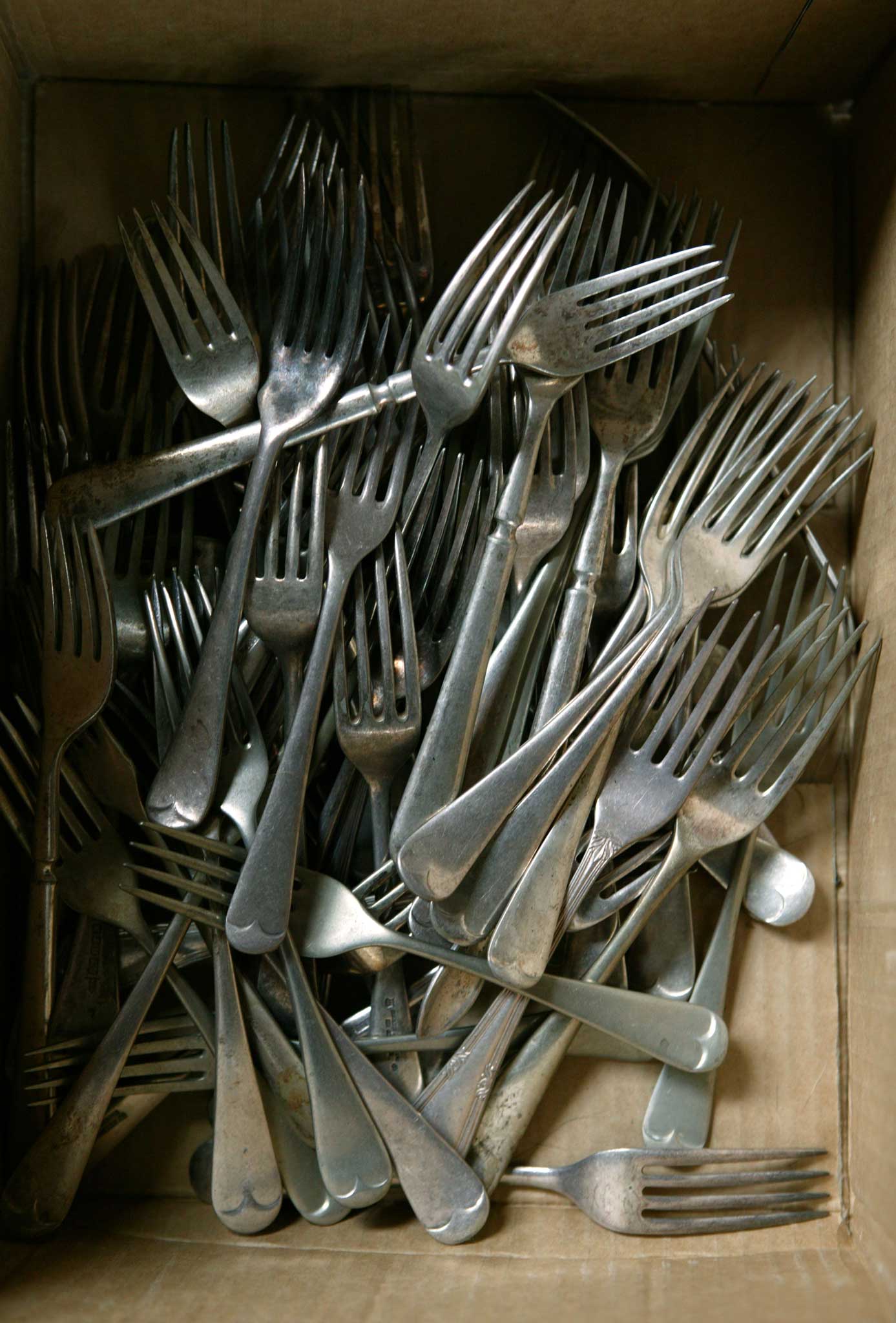Consider The Fork, By Bee Wilson
The curious history of kitchen utensils and their changing forms makes for a book to savour

As we contemplate a plateful of food, we don't think much about the work that has made it appear before us. Yet hundreds of people unite across time to bring us a simple grilled steak and fries. We may know of the kitchen-work of chopping and cooking, the butcher's work of cutting and hanging, the farmer's work of growing and caring. But how often do we think of the knife-maker, or of the people who made the oven? Bee Wilson's engrossing new study of utensils ought to change all that; you will never look at a kitchen knife in the same way again.
There is always a risk that food history will seem frivolous, since most of it is about very posh eaters. Wilson combats this by her sturdier account of the way engineering and craftsmanship fuel the evolution of food. She shows us our national symbol, roast beef, as the result of knowledge and technique. Five "deadly" iron spears, precariously joined, are turned beside – not over – a fire; on them is a piece of meat, wrapped in herbs, which tastes "out of this world". Such delights, Wilson thinks, were limited to the wealthy, not noting the role of beef in the medieval Christmas feast, to which tenants, even lowly ones, could be invited.
Fascinatingly, Wilson suggests that the roasting skills of English cooks did not easily transfer to other forms of cooking. She sympathises with the turnspit boy – one turnspit was only five – and gives a heartrending portrait of their miserable lives. She deplores mindless foodie nostalgia, yet she worries that – gas cookers apart – most new inventions do not liberate, but enslave us. For her, the glossy new mixmaster is a mute rebuke, nagging us to make cakes. Amusing on the Elizabeth David-led cult of Slow Food, Wilson falls for it herself in praising Alice Waters, David's most devout follower. Many people lived and still live without any cooking facilities at all, dependent on takeaways and tins, but Wilson doesn't connect this explicitly with the middle-class worship of mortar and pestle.
Her knowledge of recent technology sometimes seems spotty; hand blenders, beloved by most chefs and by me, would obviate the problems she has with watercress soup. She also thinks that once something has been invented it remains unchanged; she doesn't mention the radical decline in the quality of mixers, especially the KitchenAid. On the other hand, she knows a lot about dazzling recent US innovations, Pacojets and sous-vides, and she loves them, though she admits that sous-vide meat has to be seared after cooking, or it is "pallid and moist". She oversimplifies when she sees the modern cook as able to make a choice between the mad science of the sous-vide and the olde worlde of the frying pan. A sous-vide costs a lot more than a pan, and takes up a lot more space. Income brackets still defines our "culinary life", just as in 1900. Gender matters too; Wilson notices the way modernists deride mother's home cooking, though the clever men in white coats have always done that. Utensil usage is probably more intensely individual than Wilson thinks. My grandmother mourned the advent of gas and the passingof her wood-fuelled range, and always measured baking ingredients in "the pink breakfast cup". This domestic Holy Grail allowed her to make sponge cakes that stood up as proud and moist as any genoise.
It might serve to illustrate the almost superstitious individuality of cooking and its power to trample on the common sense and common trends identified in this deft and fascinating book.
Diane Purkiss teaches English at Keble College, Oxford; her book, 'The English Civil War: a people's history' is published by HarperCollins
Subscribe to Independent Premium to bookmark this article
Want to bookmark your favourite articles and stories to read or reference later? Start your Independent Premium subscription today.

Join our commenting forum
Join thought-provoking conversations, follow other Independent readers and see their replies